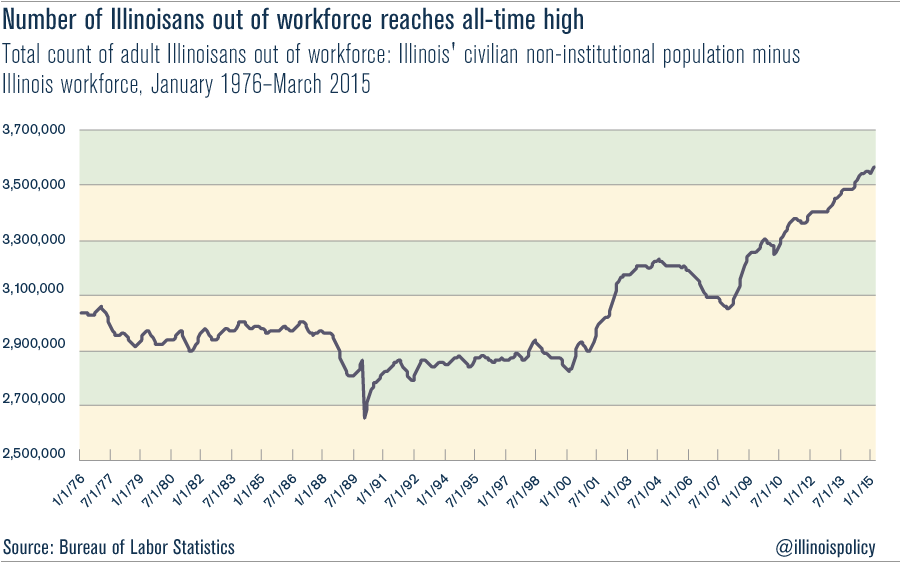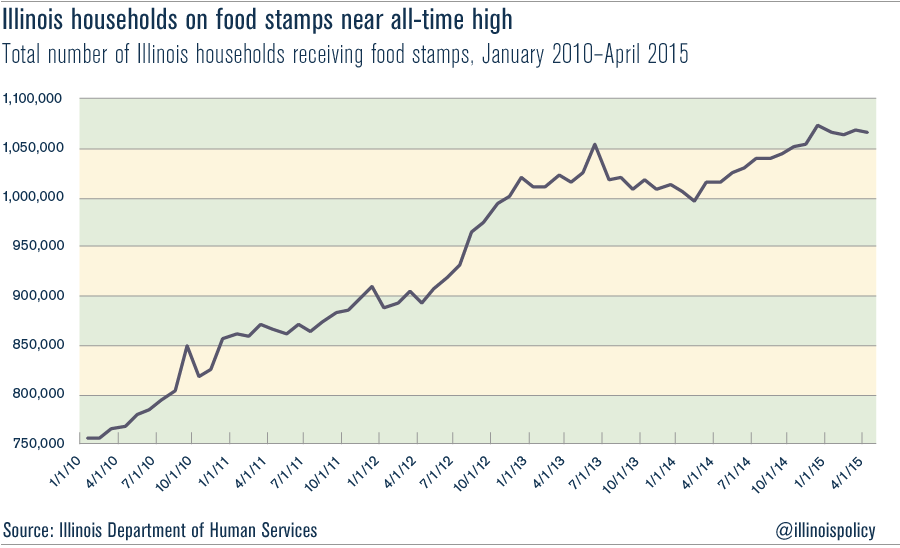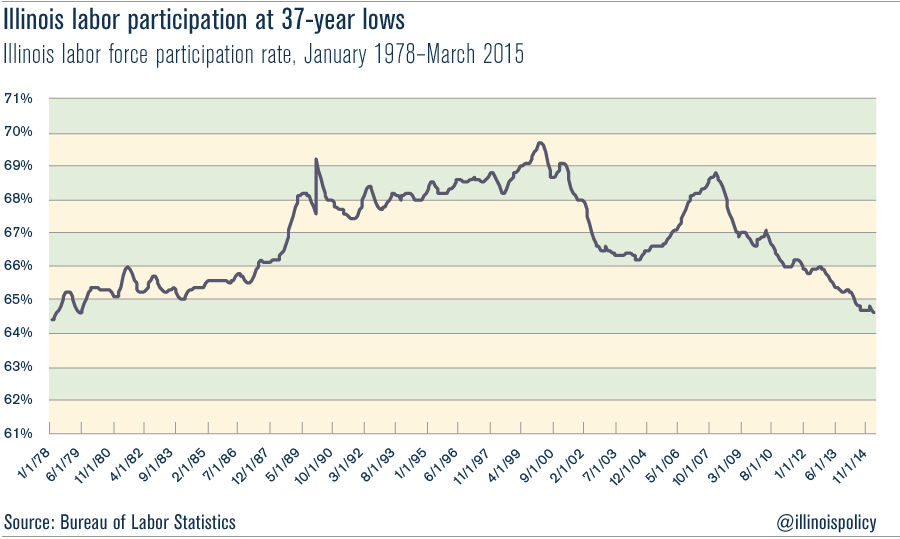Record number of Illinoisans out of workforce, labor participation rate at 37-year lows
March jobs data offer a glimpse into what’s driving hoards of Illinoisans out of the state.
The number of Illinois adults not in the workforce hit an all-time high in March, signaling that Illinois’ tepid economic recovery has not reached enough Illinoisans. The problem of labor-force drop out has been escalating since the Great Recession, with Illinois’ workforce shrinking far beyond just the retirement of baby boomers. Today, there are nearly 3.6 million adult Illinoisans who are not in the workforce, the highest count ever.
Marching upward in lockstep is the number of Illinois households enrolled in the Supplemental Nutrition Assistance Program, commonly known as food stamps. Even over the course of the economic recovery, which began in late 2009, the number of Illinois households dependent on food stamps has continued to climb higher. Since January 2010, an additional 310,000 Illinois households have enrolled in food stamps. During the same time, the number of adult Illinoisans not in the workforce has increased by 276,000.
There are nearly 1.1 million households on food stamps in Illinois, representing 22.3 percent of all households, barely below the all-time highs of December 2014.
The overall labor force participation rate in Illinois is sinking lower and lower every month. The participation rate measures the percent of adult Illinoisans who are actively engaged in the workforce. As of March 2015, a mere 64.6 percent of Illinois adults are participating in the Illinois labor force, the lowest rate in the past 37 years. Not since March 1978, when the labor participation rate was 64.5 percent, has the rate been lower.
Out of all Illinois’ five neighboring states, plus Michigan, Ohio and Minnesota, Illinois is the only state that is still hitting new lows on its labor force participation rate.
The expansion in the number of Illinois households on food stamps along with the state’s plummeting labor force participation rate speaks volumes about what is driving more and more people out of the state each year. Illinois has become the Midwest’s leading producer of economic refugees, and the No. 1 exporter of talent. With 236,000 fewer people working in Illinois compared to before the recession, Illinois is also home to the worst economic recovery in the U.S. The problem is a lack of economic opportunity.
A policy roadmap is needed to chart a course toward more opportunity for Illinoisans. Gov. Bruce Rauner’s Turnaround Agenda addresses the state’s main regulatory pain points that are holding up business expansion, including workers’ compensation, unemployment insurance, tort liabilities and worker freedom; along with putting caps on the most extreme property taxes in the Midwest. In addition, the Illinois Policy Institute’s Legislative Agenda for Entrepreneurs would make it easier for all Illinoisans to start a business, thus encouraging more investment and business formation, and ultimately more opportunities for innovation and meaningful work in Illinois.



